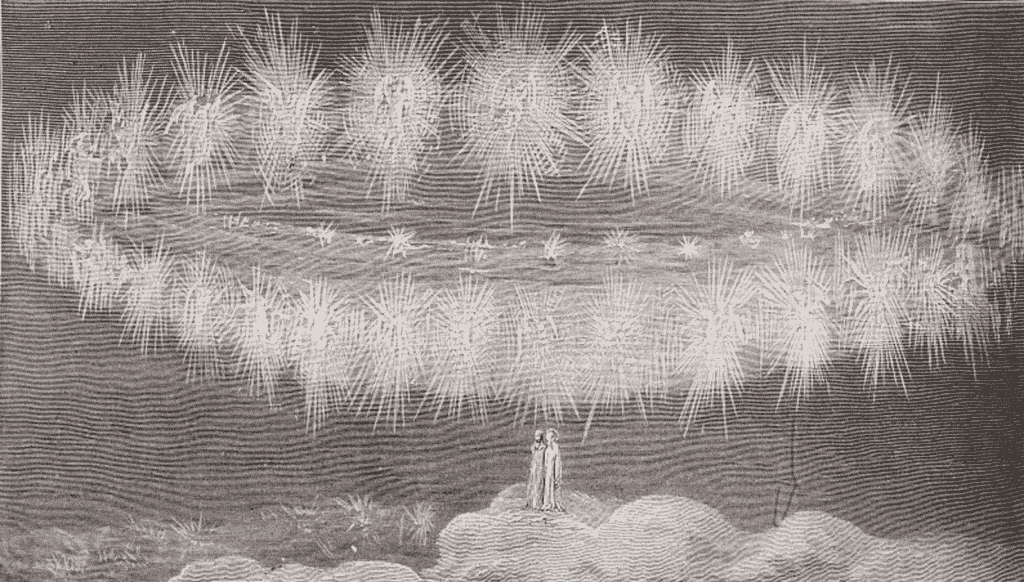Do we have spirit, soul, and body or just soul and body?
I was at a coffee shop yesterday and I got pulled into a conversation with a stranger about metaphysical nature of the soul.
This man emphasized that we are not simply a soul and body, but that we are spirit, soul, and body.
So what is the Catholic to say?

This the bipartite vs. tripartite debate on human anthropology. The majority position in the Catholic Church is that we have a physical element (body headed by the brain) and a metaphysical element (soul headed by the spirit). The spirit is the highest intellectual faculty of the soul.
The locus classicus on this topic is Hebrews 4:12
“For the word of God is alive and active. Sharper than any double-edged sword, it penetrates even to dividing soul and spirit, joints and marrow; it judges the thoughts and attitudes of the heart.”
Tripartite advocates point here showing that “soul and spirit” are distinguished and thus separate. The problem here is that if soul and spirit are different entities then our body is also twofold with different entities, namely joins and marrow.
Soul Vocab in Scripture
Let’s review the terminology in Hebrew and Greek:
Hebrew
- Basar: flesh or body. In Genesis, this comes from dirt, mud, or grime. It is the lowest basest element of man.
- Nephesh: soul or life force. In Genesis this is the life of a living thing. It can be said that animals and perhaps plants have nephesh or a living force within them.
- Ruach: spirit or breath. In Genesis, God breathes this into Adam and it is what makes human unique from all other animals. It is something we share with God – the intellectual and voluntary faculty that makes us rational animals or human.
Greek
- Sarx: flesh. In Greek it is the body but also includes the animal passions of the body for nutrition and sex. Saint Paul typically uses sarx to include the effects of original sin in all humans. Hence sarx has a somewhat pejorative meaning in the New Testament as in the sinful “law of the flesh.”
- Soma: body. This is a physical body and doesn’t necessarily include the passionate elements of sarx above, but it can. Used 129 times in NT.
- Psyche: soul or life force. The Greeks explicitly stated that all living things have a “soul” or psyche, including plants, animals, and humans. Some speculated whether each star and planet had a psyche since they also had an interior principle of motion similar to life. Used 105 times.
- Nous: mind. In Greek this refers to the highest intellectual faculty of the human.
- Pneuma: spirit or breath. This is a spiritual or supernatural element in man. Used 385 times, but about 80 times for the human spirit, as opposed to the Holy Spirit.
The Church Father Origen (who spoke Greek) speculated that “nous” referred to the human mind, but “pneuma” referred to the human mind redeemed and filled with grace. I rather like Origen’s suggestion. It makes a lot of sense to me.
Early Gnostics (drawing from Paul in 1 Corinthians, esp. chs. 2 and 15) spoke of three kinds of people:
- sarkic or fleshly people. He relates this to Jews and unsaved people who have not the ability to see Jesus Christ as the Son of God and Savior. They live according to sight and according to the flesh. For Paul, the Jewish preoccupation with circumcision is an example of them living “by the flesh.”
- pscyhic or soulish people. Common people in the mainstream church who have not been initiated into the deeper knowledge of the Gnostic teachers.
- pneumatic or spiritual people. Those who have acquired the secret teachings passed along by visions or by secret traditions allegedly derived from the Paul or the Apostles.
Church Fathers on Bipartite vs. Tripartite
The Eastern Orthodox Church tends toward a tripartite anthropology and this likely derives from the distinctions of Saint Paul, but especially from the writings of Origen and, through his influence, the writings of the three Cappadocian Fathers Saint Basil, Saint Gregory of Nyssa, and Saint Gregory Nazianzus. If you are interested in learning more about Origen and these three sainted teachers and their theology, please watch the NSTI video lessons on them in our Historical Theology Modules.
In the West, the Pelagian heretics wrongly taught that the soul and body were corrupted by sin, but that the human spirit remained unaffected by sin and remained righteous and good. Consequently, Saint Augustine and others blew a hole in the Pelagian tripartite anthropology showing that the moral state of the soul was the same as the moral state of the human spirit. The strict tripartite arrangement was associated with Pelagianism and was thus held suspect in the Latin West.
What and How Can We Speak of “Spirit and Soul”?
When speak of the soul by the Hebrews (nephesh) and by the Greeks (psyche), they spoke chiefly of life and motion. Oak trees, weeds, crabs, fish, squirrels, and gorillas possess this “life force” or “soul.” The Jews by divine revelation and the Greeks through philosophy were speaking of the same thing.
Even more, both understand that within the human person, there was something beyond the life force. Beyond our motion across earth. Beyond our pursuit for food and sex. It was something that set us apart. Something that made us religious and reflective. It is what made us homo liturgicus. It was the rational spirit they sparks within us the questions of “Why am I alive? What is the purpose of life? Who made us? What are we supposed to be doing? Where are we headed? What happens after all this?”
In the Latin West, we call this the “rational soul” or the “intellectus.” Those terms work, but I rather like the poetic distinction between the “soul” and the “spirit” in Scripture. As Saint Paul said, Adam had for us a soul. But Christ became for us a “life giving spirit.” Here Paul doesn’t mean that Christ was a docetic or solely spiritual phantasm. Rather, he is capturing that Christ becomes for us the means by which we find the answers to the spiritual questions that I’ve listed above.
And as Origen (though not a saint and somewhat dangerous) observed, his suggestion that “mind/intellect” and “spirit” are simply two ways of referring to the same thing but from different points of view – with the spirit being the way to refer to the illuminated and redeemed mind.
It seems that the presence of the divine Holy Spirit in our soul transforms our intellect into a spiritual intellect or into a spirit. My guess is that the liturgical response “and with your spirit” is an acknowledgment of this reality in the communal life of the Church. When we respond that way, we aren’t just saying “and also with you,” but we are acknowledging the transformative power of the Holy Spirit within the celebrant.
Dive Deeper

GET CONFIDENT IN YOUR FAITH
Explore the fascinating world of Catholic teachings with Dr. Marshall. Together you’ll unpack the brilliant answers the Church gives to tough questions about the Faith. The best part: you go at your own pace. Start this exciting journey today.

